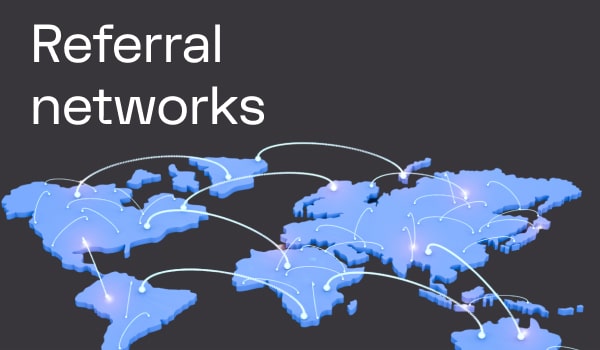
There have been significant breakthroughs in AI in many fields from transportation, healthcare, finance, and manufacturing to retail, travel, advertising, and other areas imaginable. This review and research of AI in recruitment was prompted by the author’s desire to understand both the potential competitive threats that AI solution providers present to traditional executive search business, and the competitive advantages that its application may offer at various stages of the executive search process. Reliable research on AI in recruitment is very limited and in executive search it is even more scarce or virtually nonexistent. At least partially due to AI’s rapid development, much of the information and knowledge are anecdotal and they are published in blog posts and feedback loops rather than on robust research platforms based on extensive and nuanced analysis.
Executive Search vs. Other Recruitment
It is important to understand the differences between executive search and non-executive search. For clarity’s sake, let’s call non-executive search ”recruitment” in this context. To put it simply, in executive search the focus is on quality of the candidate, not on volume, whilst in recruitment the focus is on both quality and volume. Executive search is very personal and targeted whilst recruitment is more collectively oriented. In executive search, candidates are ”invited” to the process to examine a new career opportunity whilst in recruitment supply is generated mostly by advertising and other means of encouraging job applications. When assessing executive candidates, the primary focus is on leadership skills and related qualities, whilst in recruitment the focus is more on technical skills and the tasks at hand. With executive candidates, the communication between the executive search consultant and the candidate is focused on strategic issues such as the company’s strategy, industry trends, and how the company is prepared for the markets, and how the candidate can support and lead the company in the particular industry and environment. The recruiter’s communication with non-executive candidate is focused more on operational issues, the content of the job and the specific skills that are needed to succeed in it. Furthermore, typically, the vast majority of executive search consultant’s time should be spent on finding and engaging passive candidates who are not actively looking for new opportunities and who are not following ongoing job advertising. On recruitment, the focus is more on informing the marketplace and active candidates about the opportunity and encouraging them to apply.
Current Uses of AI
A review of user feedback of various AI tools developed to assist recruitment revealed that recruiters typically comment on the ease of using an application and on the general user-friendliness in applying the tool and arranging recruitment data. A common experience is also heightened speed in collecting resumes from various platforms and analyzing the fit with the job requirements. Interestingly, users of AI tools say little about the overall quality of the candidates that come to the process this way, in comparison to not using AI tools in developing the long list of candidates.
AI tools are currently used in recruitment primarily to develop a long list of candidates, to connect the process with ATS (applicant tracking systems) for logistical, administrative, and scheduling benefits, and also for first-round interviewing of candidates. In interviewing, the value proposition is that AI can analyze candidates’ vocabulary, body language, confidence, eye contact, etc. during a video interview, and then rank them. Many AI-driven aptitude tests are also used to evaluate candidates. It is questionable whether executive candidates who the search consultant has invited to examine a new opportunity would be delighted to be evaluated by AI on the first-round interviews. However, humans’ ability to adjust to and accommodate new technologies can be surprising so it is difficult to say how soon that may happen. Another major question is how AI could not only identify but to engage executive candidates and bring them into the process. That capability seems to be rather far in the distant future.
Stumbling Blocks for AI in Executive Search
Executive search is such a personal and multi-step endeavor and process, that although AI can he harnessed to help research various organizations, prospective candidates, and aptitudes, much of it is and remains, at least for the time being, human-led and -performed activity. Search planning and preparation require extensive communication, collaboration, and negotiation between the consultant and the client company. Networking leading to valuable sourcing discussions is a direct human contact activity by definition. Outreach seeking to engage passive candidates ditto. Short-list interviews require not only leadership but culture and soft skills assessment that humans are not nearly ready to relinquish to machines. Making or conveying an offer to a candidate is a sensitive activity where the search consultant plays a very important faclitating role, and s/he can act as a buffer during delicate negotiations and prevent the final stages of the process from going on a wrong track.
To Capture Value from AI Depends on the Activity
AI provides massive opportunities in the industry and society – in some fields more than in others. It can serve as a good tool in select processes in recruitment, and it can generate more value in recruitment outside executive-level search. For reference, even the leading recruitment websites that utilize AI cannot independently produce a long list of (non-executive) candidates not to mention a short list. Research in recruitment and in search is superficial and lacks nuance and deeper insight. Some data exists mostly on recruitment, but not much on executive search. Executive search is about engaging and informing people and inviting them to the hiring process, not about “applying” – the emphasis is on finding passive candidates.
Everyone is familiar with a situation where a person’s professional profile looks great but it becomes clear, upon closer examination, that they are utterly unsuitable for presenting to clients, as often a short conversation reveals a lack of required communication skills, culture or team fit discrepancy, etc., which are not otherwise evident. Personal contact provides the search consultant deeper insight and understanding - the more contact points, the more insight. Executive search consultant must know her/his client company very well and be able to quickly assess whether the needed team fit and rapport with the hiring manager are there. AI in recruitment is a developing field with changes coming, and it will affect executive search differently and more slowly than other recruitment.
Get in touch today!



